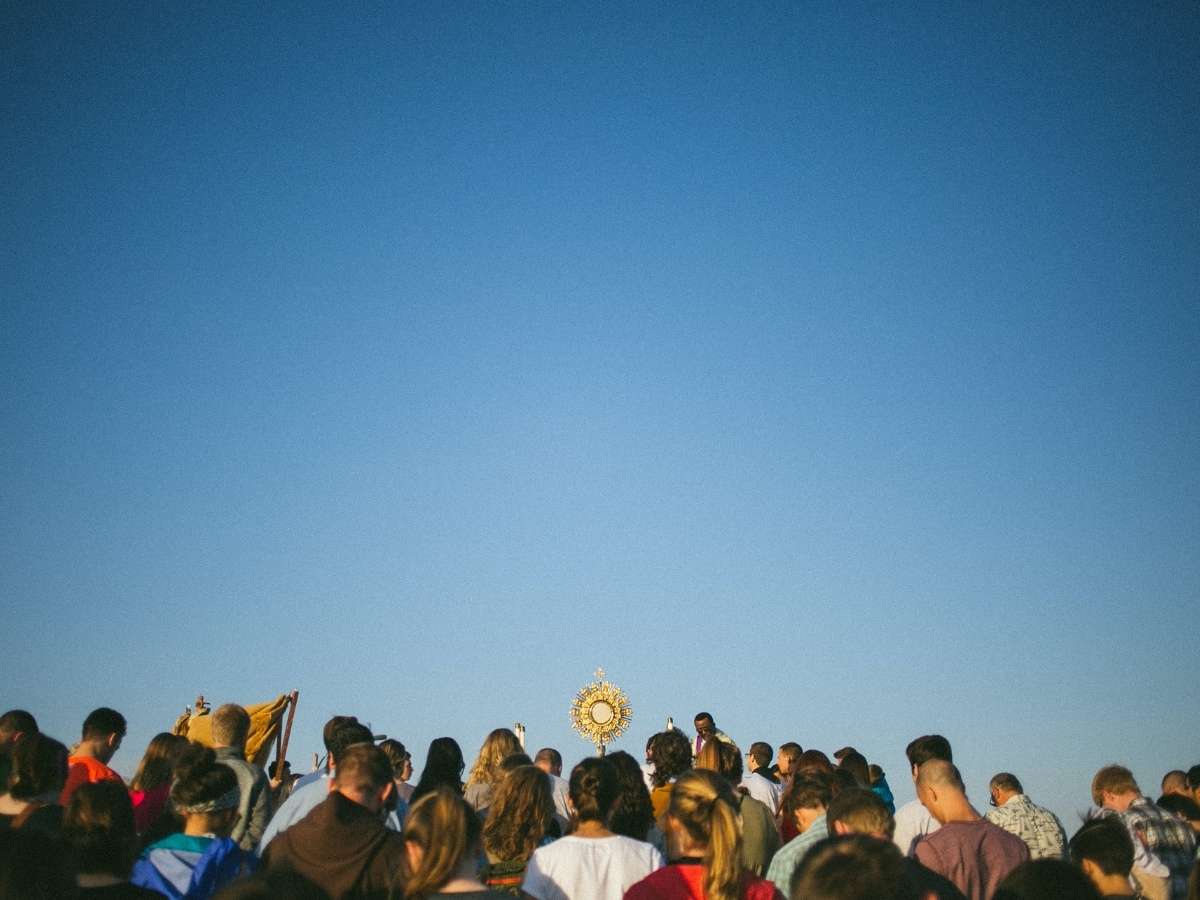By Timothy Byrne
As Catholic Christians, faith may be personal but never private. Our faith is communal and isolation is the enemy of a communal faith. In 1 Corinthians 12:27 it says, “Now you are the body of Christ, and each one of you is part of it”. When we are baptised, we become part of the same body of Christ. We are not called to only focus on our own journey towards heaven, but to desire goodness in our fellow brothers and sisters. In that way, we do not become Holy by ourselves but together as one community.
Some might feel that their faith is only between oneself and God, and worry about “interfering” in someone else’s life. However, Jesus never intended us to walk our faith journeys alone. In Luke 10:1, Jesus sent out the 72 in pairs to share the word of God. In Hebrews 3:12-14, St Paul encourages the Hebrew community to continue spurring each other to keep their eyes set on heaven. From both these examples, we see there is a clear call for us to share our faith, to fight not only for our own salvation but also for those who we, as Catholic Christians, have been baptised into the same body of Christ with us.
As shared in “Personal Faith”, faith is a grace given to us by God to perceive it. However, in our own human nature, we sometimes find it difficult to see God’s hands in our lives. That is where the importance of community comes in. There will be times when we will be prideful in our own faith and lives and unknowingly be straying from God. We need the loving touch of our community members to guide us and hold us true to what God desires for us (Galatians 6:2).
Of course, that also requires us to have a degree of openness and trust in the community we have around us. In 1 Peter 3:8, Peter exhorts us to be loving in the way we approach community. We are called to have a “tender heart” and “humble mind”. We are invited to community as we are, but are called to allow the community to help us to grow towards more of what God desires of us. In essence, our brothers and sisters are a part of our salvation story. Jesus is our salvation, but being a part of a community helps us to cooperate more with Jesus.
In our own capacity, we too are called to be welcoming and invite people into our communities. Naturally, communities are full of many different walks of people. There will be those that we do not get along with. However, we are still called to imitate the love that God shows us to those we struggle with, even if we struggle with them! (1 Peter 4:9)
Community stirs our faith, either through how we receive our community members or how we let ourselves be carried by others. Just like the parable of the paralytic man, Jesus saw the faith of his friends and said “your sins are forgiven”. We are all participants of the salvation story of those we journey with.
God’s love for us cannot lead us to salvation alone if we do not first love others. In 1 John 4:20, it says: Those who say, “I love God,” and hate their brothers or sisters, are liars; for those who do not love a brother or sister whom they have seen, cannot love God whom they have not seen.” There are times where we will struggle to love our fellow community members because of how different we are. This is because, as the saying goes, “hurting people hurt others” Perhaps our past sufferings and rejections have shaped our thinking towards certain situations, and we have learnt to protect ourselves by choosing to be cold. However, choosing to love even those who are difficult to love, we become witnesses and an embodiment to the divine love that transcends all human loves. For example, in John 4, we see how Jesus chose to show His love to the Samaritan woman who was shunned by her own community because of her past. Jesus showed her that her past did not define her, and similarly we too are called to bring His love into our wounded pasts. We allow our experience of God’s love to transform the way we love. In that way we take one step towards holiness.
There is a term used called “my brother’s keeper”. It means that we watch over our fellow man/woman, showing a great amount of bravery, responsibility, and willingness to put others before ourselves. As an example, consider Cain and Abel’s story. They both made offerings to God; Cain chose some produce from his harvest while Abel brought the very best of his livestock as an offering to God. God accepted Abel’s offering and rejected Cain’s. In his anger, Cain killed his brother. When questioned by God, Cain replied with “Am I my brother’s keeper?”, telling God that he wasn’t responsible for his brother.Cain let jealousy take over him and put himself before Abel when he should have been celebrating God’s favor for his brother. Cain was called to rejoice in his brother’s salvation. How many of us struggle in our communities because we compare our faith with our other community members? How many of us seek to “be the better Catholic?” We are instead called to be our “brother’s keeper”, to fight for the faith lives of those around us and to rejoice in their salvation, just as Cain should have done.
Instead, we can look to the Gospel of Mark in the story of the paralytic man to understand what truly it means to be our brother’s keeper. In the Gospel of Mark, we hear about the 4 men who carried their paralytic friend to Jesus. The 4 men carried their friend on the stretcher, dug a hole in the roof and lowered their friend in front of Jesus. When Jesus saw the faith of the 4 friends, He healed the paralytic man. Similarly, through our love for our fellow brothers and sisters, we too can take part in their salvific journey. This is what it means to live a life for others, and not just ourselves. A communal faith is to carry our brothers and sisters to Jesus, when they cannot do so themselves.





